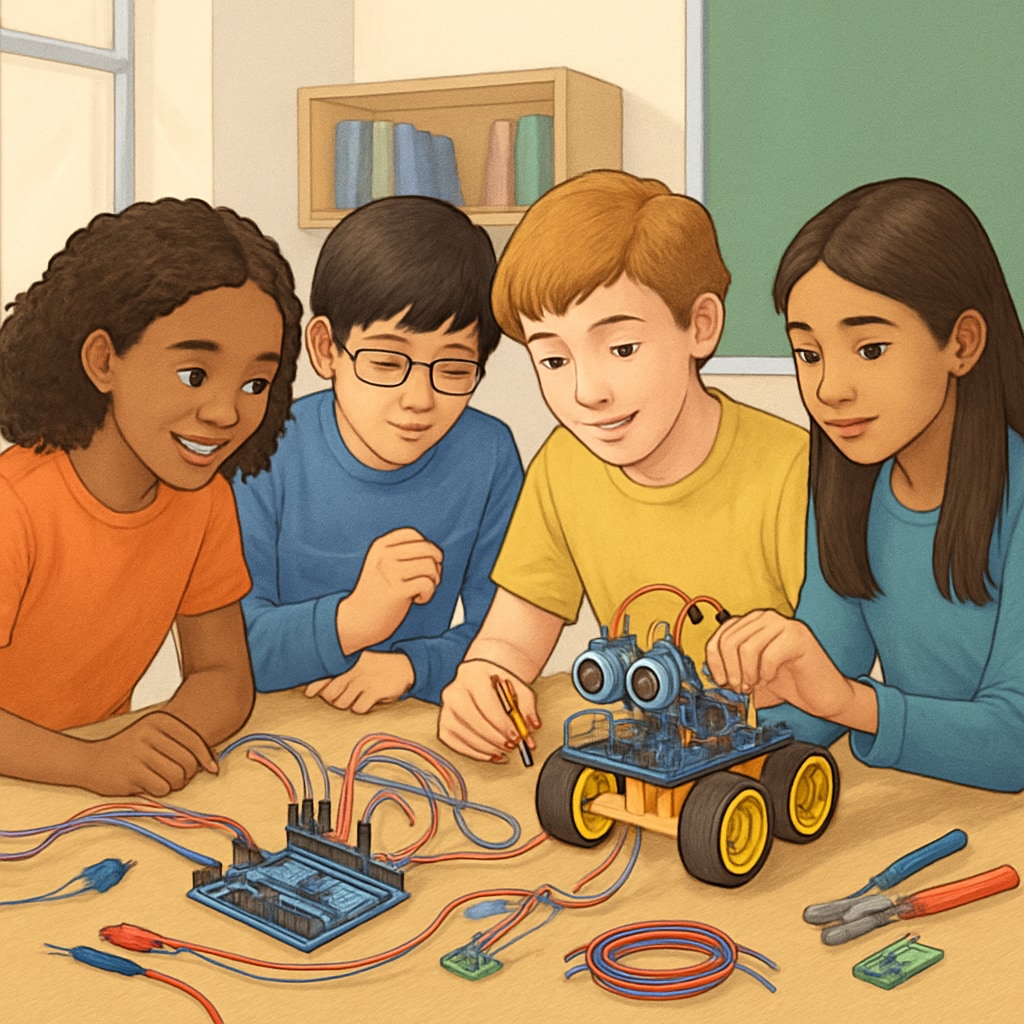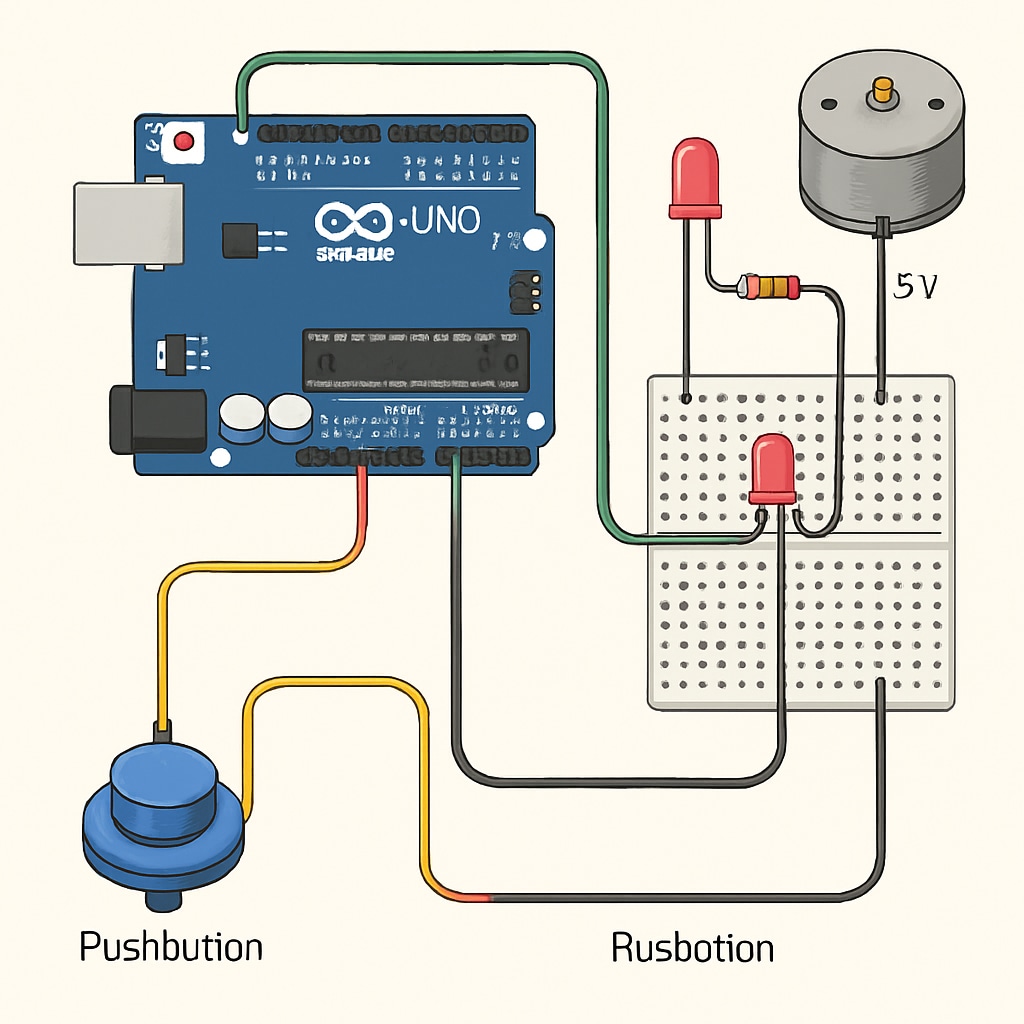For educators seeking effective robotics courses, Arduino platforms, and project-based learning solutions for K12 students, this comprehensive program offers an ideal starting point. Developed specifically for beginners, the curriculum combines hands-on experimentation with fundamental engineering concepts, creating an accessible gateway to robotics education.
Why Project-Based Robotics Learning Works
Traditional STEM education often struggles with student engagement. However, this project-based approach solves this by:
- Making abstract concepts tangible through physical builds
- Encouraging iterative problem-solving
- Providing immediate visual feedback on programming attempts

Arduino’s Role in Beginner Robotics
The course leverages Arduino’s education-friendly ecosystem because it:
- Uses simplified C++ programming that’s easier for beginners
- Offers affordable hardware components
- Features extensive online community support
For example, students might begin with basic circuits before progressing to sensor integration – a logical skill progression that builds confidence. As a result, even children with no prior experience can program functional robots within weeks.

Curriculum Structure for Optimal Learning
The 12-week program follows a scaffolded design:
- Weeks 1-3: Electronics fundamentals and basic programming
- Weeks 4-6: Sensor integration and data collection
- Weeks 7-9: Mechanical systems and movement
- Weeks 10-12: Capstone project development
This structure ensures students master prerequisite skills before tackling complex challenges. Teachers report significantly higher retention rates compared to traditional lecture-based formats.
Transitional note: While the course focuses on technical skills, it equally emphasizes creative problem-solving and teamwork – competencies increasingly valuable in today’s workforce.


